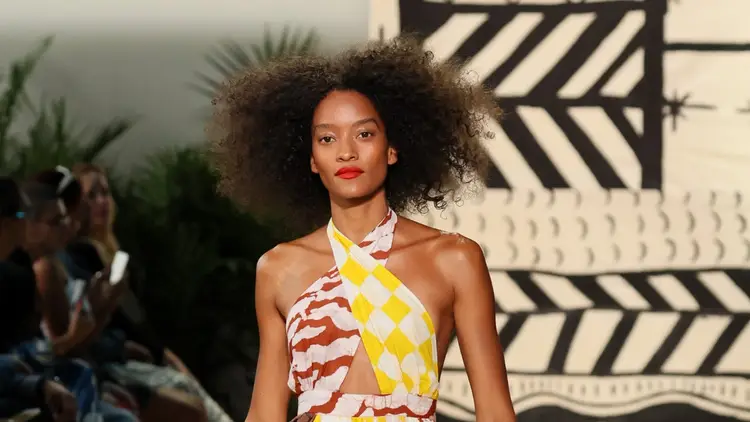Fashion Companies Adopting Sustainable Methods to Address Textile Waste

These five companies are contributing to a superior and more secure world by producing apparel.
We are always excited about the fashion landscape, especially when it comes to black-owned brands. Although smaller and emerging brands may not get the recognition they deserve, they play a vital role in our economy as well as local communities and ecosystems. Lately, there has been a significant focus on sustainability, especially in fashion. Unfortunately, mass consumption and waste are some of the leading causes of pollution. To address this issue, we have highlighted some fashion brands and designers that are committed to reducing their carbon footprint through sustainable practices. It is important to note that not all brands claiming to be sustainable are genuinely ethical. Some try to greenwash consumers into thinking they are eco-friendly when they still engage in unethical practices.
The following brands prove that they are true to their word and follow through with their beliefs.
Kimberly McGlonn, the founder of Grant BLVD, a brand based in Philadelphia, established it in 2017 as a means of taking action to help others. The name of the brand was inspired by the street she lived on as a child. With a textile strategy and donations, Grant BLVD provides free books to those who are incarcerated in the mid-Atlantic states through Book Through Bars. Oppression is countered by McGlonn's response through Grant BLVD and how she envisions the world with the brand she has created.
Founded in 2019, Tracey Reese is the brains behind the brand who has impeccable taste in recognizing the right hues. She has a knack for designing fashion that caters directly to the audience, particularly to sophisticated women who are open to innovative ideas. The company adheres to the principle of "improving upon knowledge" by responsibly obtaining materials from ethical sources and embracing the slow fashion concept during the manufacturing process of the garments.
In 2016, Sami Miro established her own label named after herself. Miro frequently acquires materials by utilizing pre-made items from secondhand stores worldwide. She alters and stitches together garments, such as sweaters and denim, producing original articles of clothing that embody a youthful essence. Her environmentally friendly approach adheres to the methodology of upcycling rather than creating entirely new garments. Miro transforms the old into something new, which is the foundation of her sustainable mantra.
Alexandra Bunch established The Local European in 2018, designing their unique pieces with recycled and repurposed materials. They don't create excess items, embracing the slow fashion concept, and employing eco-friendly materials sourced from nearby manufacturers, which minimizes their carbon impact. The brand concentrates on classic shapes and refrains from following temporary fads, enforcing their sustainable procedures.
Rosario Dawson and Abrima Erwiah launched their unique brand in 2013, which features designs inspired by West African culture. Their commitment to sustainability is evident in their use of eco-friendly practices to create exclusive outfits. They also prioritize the welfare of the people who make their clothing, as well as those who wear it. The brand takes pride in creating job opportunities for the local communities who contribute to the designs in West Africa. They recently received the Lexus Fashion Initiative for Sustainability from the CFDA, which recognizes their exceptional efforts in this area. The packaging of their products is equally important, as they aim to prevent the use of non-biodegradable plastic that could harm their West African community. Their manufacturing process takes place in Accra and uses plant-based dye and traditional West African techniques to ensure their designs are sustainable as a whole.











































